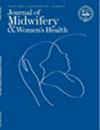Characteristics and Outcomes of Postgraduate Midwifery Fellowships: A Mixed Methods Study
Abstract
Introduction
Postgraduate fellowships are growing in midwifery and yet are poorly understood by the profession. These fellowships are optional for midwives interested in developing advanced skills, transitioning to specialty practice, or entering or re-entering professional practice. The purpose of this study was to explore the characteristics and outcomes of US postgraduate midwifery fellowships as described by midwifery fellowship program directors.
Methods
Postgraduate midwifery fellowship programs in the United States were identified through an environmental scan and snowball sampling. Directors of these fellowship programs were invited to complete a survey and an open-ended interview to determine their program's characteristics and outcomes. Quantitative data were summarized, and thematic analysis was used to explore the qualitative data.
Results
An environmental scan and snowball sampling identified 17 postgraduate midwifery fellowship programs. Thirteen fellowship program directors completed a survey (76.5%), and 11 completed an interview (64.7%). The findings identified program characteristics, including location, structure, funding, and educational offerings, of midwifery fellowship programs. The thematic analysis revealed the emergence of 3 themes highlighting the creation of support for midwives in transition, including new graduates and practicing midwives returning to practice after a hiatus or shifting to specialty practice: (1) stepping stones, (2) empowered and equipped, and (3) innovative future. Community birth practice was defined as specialty practice by these directors.
Discussion
The results of this study inform the profession of the availability of fellowships and the development of future high-quality midwifery fellowships. Postgraduate midwifery fellowships should not be required for entry to practice but have a place in the work-study opportunities available to US midwives.

 求助内容:
求助内容: 应助结果提醒方式:
应助结果提醒方式:


